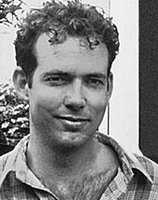 Eleanor Rigby
Eleanor RigbyDouglas Coupland
Ah, look at all the lonely people. Where do they all come from? Will Coupland answer these questions that have been plaguing Beatles' fans for decades? Let's see.
Liz Dunn, our "Eleanor Rigby," does not lead a happy life. She is overweight, unattractive, and extremely, hopelessly, lonely. She has given up any idea of finding happiness, and has instead found a sort of comfort in her routine, which has become her life. She, like Prufrock, is no prince, but only an attendant, good to start a scene, but certainly not interesting enough to star in it.
Dunn's routine is interrupted by Jeremy, her son, given up for adoption when Liz was 16. Her return to life is chronicled through the novel. Suddenly, she is the star.
 Eleanor Rigby was immediately enjoyable due to the brilliant insights littered through its pages, especially the beginning. They are nothing new but are uttered with a clarity I had not seen before. And yet, something stops Rigby from being better than this. Is it the tone? The utter lack of conflict? The fact that it's "too readable"? I'm not sure--but I do know that by the end, I know nothing more about loneliness than I did before: it sucks. Where do the lonely people come from? They come from loneliness? That's as much of an answer Coupland offers. Cold comfort for the lonely people.
Eleanor Rigby was immediately enjoyable due to the brilliant insights littered through its pages, especially the beginning. They are nothing new but are uttered with a clarity I had not seen before. And yet, something stops Rigby from being better than this. Is it the tone? The utter lack of conflict? The fact that it's "too readable"? I'm not sure--but I do know that by the end, I know nothing more about loneliness than I did before: it sucks. Where do the lonely people come from? They come from loneliness? That's as much of an answer Coupland offers. Cold comfort for the lonely people.In a nutshell: Interesting, but not earth-shattering. Add to the "had the potential to be better" pile.
Bibliolatry Scale: 3.5 out of 6 stars
No comments:
Post a Comment